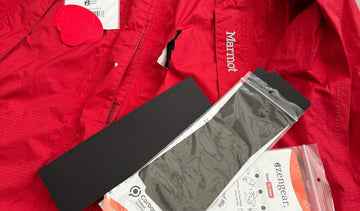There are various reasons why a person may find themselves apprehensive about skiing. They may have taken their first couple of lessons, in order to find the whole thing far more difficult than expected. Elsewhere, it could be that a bad fall or injury suffered on the slopes has made it difficult to get back in the proverbial saddle.
Truth is, skiing when nervous is no fun. You’re surrounded by others getting a real kick out of the whole thing, while you’re counting the minutes until it’s time to go home.
Of course, it’s entirely up to you whether you continue with the whole thing at all. Nobody’s forcing you to ski, and there’s no shame in admitting you don’t like it.
But if you’re 100% determined to get past your fear of skiing, it’s something you can do. There are no guarantees, but by taking a proactive approach to your nervousness, you could eventually turn things around.
Here’s how:
-
Be honest and open
First up, don’t make any attempt whatsoever to hide your true feelings about skiing. Make it clear that you’re really not comfortable with the whole thing at the moment, and don’t bite off more than you can chew. If this means sticking with the nursery slopes while your friends hit the Olympic slalom runs, so be it. There’s no shame in being honest, whereas hiding your true feelings will only cause you problems.
-
Get the right gear
Setting yourself up with the right gear for a day on the slopes can be highly motivating. A pair of supportive compression socks, a lightweight bag to keep your essentials in, a decent pair of padded ski trousers to protect you from falls and elbow support sleeves – all simple bits and pieces that can contribute to the cause. Understandably, it can be difficult to fork out for ski gear if you’re not exactly fond of skiing at the time. Even so, this could be just the thing to motivate you to take that next big step.
Product Spotlight:
Drawstring Gym Bag: Waterproof Rucksack for Sport, PE, Swim, Beach, Yoga, Travel
- LARGE CAPACITY STRING BAG: backpack size is 35x40cm (14x16”) with a 20x20cm (8x8”) inside zip pocket to put a mobile phone, wallet, keys, etc and 25x30cm (10x12”) outside pocket with a waterproof zipper. Reinforced reflective corners and reflective, adjustable thick strings included. Portable and lightweight (can be folded)
- WATERPROOF & DURABLE: the drawstring bag is made out of nylon (polyester) derived from recycled plastic bottles and fishing nets. The material is thick and strong
- EASY TO CLEAN: can be machine washed in warm water. Due to being water resistant, it is easy to wipe off any dirt, stains or marks from the surface. Makes a perfect gift for your friends and family
- FOR SPORT, TRAVEL, CLUBS: the rucksack is for men, women, boys, girls, kids, teens and can be used for gym, swimming, school PE lessons, trips, sport, camping, hiking, cycling, dance, fitness, holiday, shopping, flight carry-on, outdoor activities as well as home storage (toys, shoes, books, clothing, towels)
-
Watch your speed and learn how to stop
Truth is, the likelihood of having a bad accident while skiing at a slow speed is minimal. Likewise, if you know how to bring yourself to a safe stop, you’re pretty much golden. These are therefore the two skills you need to master above all others. Forget about high-speed descents and tricky turns for now. Familiarise yourself with the basics, and stick with these basics exclusively for the time being.
-
Take a lesson
There is no better way to build the confidence you need to enjoy skiing than to take a ski lesson. Under the watch of a professional, you will receive all the one-to-one tuition you need to get to grips with the basics. They’ll know exactly what to do to turn your nerves around, and will understand all of your concerns. Importantly, they’ll provide you with the expert input and support you need to become a safe and responsible skier.
-
Know your limits
Last up, even the most seasoned professional skiers have their own physical and psychological limitations. It is a proven fact that the risk of getting hurt on the slopes increases as the day progresses. You become physically tired, your mind starts to wander, and the safety aspect of the whole thing takes a back seat. This is why it is important to know (and stick to) your limits. The moment you feel yourself getting tired, achy, or even just a bit fed up with the whole thing, it’s time to call it a day.






